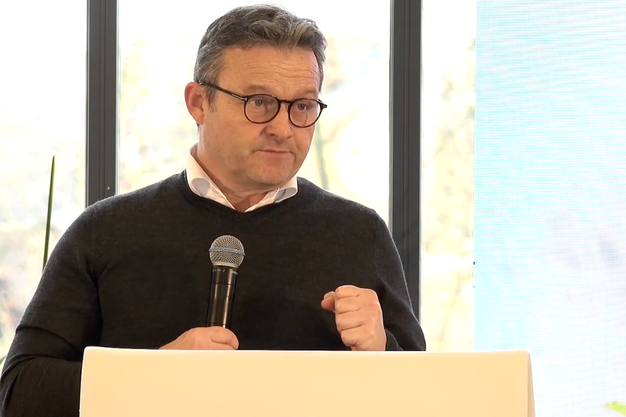Achieving Sustainable Development Goal 4 – Education International

Report on the State of Public Education and the Teaching Profession in Lebanon
Introduction: A Crisis Impacting Sustainable Development Goals
In alignment with the global “Go Public! Fund Education” campaign, Education International (EI) member organizations in Lebanon are advocating for increased sustainable funding for public education. This initiative, informed by recommendations from the UN High-Level Panel on the Teaching Profession, addresses a severe crisis in the nation’s education sector that directly undermines progress towards several Sustainable Development Goals (SDGs), most notably SDG 4 (Quality Education), SDG 8 (Decent Work and Economic Growth), and SDG 1 (No Poverty).
Analysis of Systemic Challenges to SDG Achievement
Chronic Underfunding and its Detriment to SDG 4 (Quality Education)
New research presented on October 8th, 2025, highlights a critical shortfall in investment, which severely compromises the delivery of inclusive and equitable quality education as mandated by SDG 4. Key findings include:
- A drastic decline in education spending from an annual average of $1.2 billion between 2013-2015 to just $114 million in 2022.
- While education funding as a percentage of GDP rose to approximately 2.4%, this was a consequence of economic contraction rather than increased investment, leaving funding levels critically insufficient amidst hyperinflation.
- These financial constraints directly impede the state’s ability to provide quality learning environments and resources, a foundational target of SDG 4.
Erosion of Decent Work (SDG 8) and Increased Poverty (SDG 1) among Teachers
The research reveals that the working conditions for educators in Lebanon are in direct conflict with the principles of SDG 8, pushing a vital professional class towards poverty, which contravenes SDG 1.
- Approximately 70% of teachers are employed on precarious temporary contracts, lacking benefits and job security. This practice undermines Target 8.8 of the SDGs, which calls for the protection of labor rights and the promotion of safe and secure working environments.
- Wages range from $1 to $2 per hour, with monthly earnings between $200 and $300. This is significantly below the estimated survival threshold of $450–$500, failing the “decent work” standard and contributing to in-work poverty.
- The dual employment structure (contract vs. permanent) fosters inequality within the profession, working against SDG 10 (Reduced Inequalities).
- The lack of legal recognition for teacher unions obstructs social dialogue and collective bargaining, key components for achieving decent work.
Strategic Interventions and Multi-Stakeholder Partnerships (SDG 17)
Commitment to a National Teachers’ Commission for Institutional Strengthening (SDG 16)
In a positive development for institutional reform, Minister of Education Dr. S. Reema Karameh has committed to establishing a National Teachers’ Commission. This initiative represents a significant step towards achieving SDG 16 (Peace, Justice and Strong Institutions) by:
- Fostering inclusive social dialogue by bringing together unions, the Ministry of Finance, and the Prime Minister’s cabinet.
- Creating a platform for coordinated and responsive policy development to improve teacher conditions.
- Aligning with Recommendation 5 of the UNHLP Report, which emphasizes the importance of institutionalized social dialogue to enhance the status of the teaching profession.
Manal Hdaife, Chair of the EI Arab Cross-Country Regional Structure, welcomed this as a crucial step toward translating policy recommendations into tangible action to improve educators’ status, a prerequisite for achieving SDG 4.
Building Alliances for Policy Implementation
The campaign is actively fostering partnerships in line with SDG 17 (Partnerships for the Goals) to ensure research translates into policy action. Key next steps include:
- Submitting the full research report to UNESCO and the Lebanese Ministry of Education upon their request.
- Engaging with members of Parliament to build legislative support for increased education funding.
- Leading the formation of a Trade Union Coalition for the Public Sector to present unified demands for defending public services, including education.
Analysis of Sustainable Development Goals in the Article
-
Which SDGs are addressed or connected to the issues highlighted in the article?
- SDG 4: Quality Education: The article’s central theme is the crisis in Lebanon’s public education system, focusing on the need for increased and sustainable funding for schools and the teaching profession. The entire “Go Public! Fund Education” campaign is aimed at achieving quality education.
- SDG 8: Decent Work and Economic Growth: The article extensively details the poor working conditions of teachers, including extremely low wages, precarious temporary contracts, and lack of benefits. This directly relates to the goal of achieving decent work for all.
- SDG 1: No Poverty: The article explicitly states that teachers’ monthly earnings of $200 to $300 are “well below the survival threshold of $450–$500,” indicating that educators are living in poverty despite being employed.
- SDG 16: Peace, Justice and Strong Institutions: The article discusses fragmented policy-making and the lack of legal recognition for teacher unions. The proposed solution, a “National Teachers’ Commission,” aims to create an inclusive and participatory institution for social dialogue and coordinated policy, which is a core aspect of SDG 16.
-
What specific targets under those SDGs can be identified based on the article’s content?
- Target 4.c: By 2030, substantially increase the supply of qualified teachers, including through international cooperation for teacher training in developing countries, especially least developed countries and small island developing States. The article’s focus on improving teacher salaries, benefits, and working conditions is essential for retaining and attracting qualified teachers to address the education crisis.
- Target 8.5: By 2030, achieve full and productive employment and decent work for all women and men, including for young people and persons with disabilities, and equal pay for work of equal value. The article highlights the opposite of this target, describing how 70% of teachers are on temporary contracts, earning between $1 and $2 per hour, which is not decent work.
- Target 8.8: Protect labour rights and promote safe and secure working environments for all workers, including migrant workers, in particular women migrants, and those in precarious employment. The article points out that “teacher unions are not legally recognized in Lebanon,” which directly undermines the protection of labor rights for educators.
- Target 1.2: By 2030, reduce at least by half the proportion of men, women and children of all ages living in poverty in all its dimensions according to national definitions. The fact that teachers’ salaries are significantly below the “survival threshold” directly connects their situation to this poverty reduction target.
- Target 16.7: Ensure responsive, inclusive, participatory and representative decision-making at all levels. The commitment to establish a “National Teachers’ Commission” to bring together unions, the Ministry of Finance, and the Prime Minister’s cabinet is a direct action towards achieving this target by fostering social dialogue and inclusive policy development.
-
Are there any indicators mentioned or implied in the article that can be used to measure progress towards the identified targets?
- Indicator for Education Finance: The article provides a clear indicator for education funding by stating it as a “percentage of GDP,” which rose to 2.4% due to economic contraction, and by tracking the absolute decline in education spending “from $1.2 billion annually between 2013 and 2015 to $114 million in 2022.”
- Indicator for Teacher Employment Conditions: The article specifies that “around 70% of teachers are employed on temporary contracts without access to benefits.” This percentage serves as a direct indicator of precarious employment in the teaching profession.
- Indicator for Wages and Poverty: The article provides several quantitative indicators for wages, including hourly earnings (“between $1 and $2 per hour”) and monthly earnings (“$200 to $300”). It also provides a poverty line indicator by comparing these earnings to the “survival threshold of $450–$500.”
- Indicator for Labour Rights: A qualitative indicator is the legal status of unions. The article states that “teacher unions are not legally recognized in Lebanon,” which serves as a baseline measure for progress on labor rights.
- Indicator for Institutional Dialogue: The “establishment of a National Teachers’ Commission” is a key qualitative indicator mentioned in the article. Its formation and effectiveness can be tracked to measure progress towards inclusive and participatory decision-making.
SDGs, Targets, and Indicators Table
| SDGs | Targets | Indicators |
|---|---|---|
| SDG 4: Quality Education | Target 4.c: Substantially increase the supply of qualified teachers. | Total government expenditure on education as a percentage of GDP (mentioned as 2.4%). Absolute education spending (declined to $114 million in 2022). |
| SDG 8: Decent Work and Economic Growth | Target 8.5: Achieve full and productive employment and decent work for all. | Percentage of teachers on temporary contracts (mentioned as 70%). Hourly wage for teachers (mentioned as $1-$2 per hour). |
| SDG 8: Decent Work and Economic Growth | Target 8.8: Protect labour rights and promote safe and secure working environments. | Legal recognition of teacher unions (mentioned as not legally recognized). |
| SDG 1: No Poverty | Target 1.2: Reduce at least by half the proportion of people living in poverty. | Monthly teacher earnings ($200-$300) in relation to the national survival threshold ($450-$500). |
| SDG 16: Peace, Justice and Strong Institutions | Target 16.7: Ensure responsive, inclusive, participatory and representative decision-making. | The establishment and functioning of a National Teachers’ Commission for social dialogue. |
Source: ei-ie.org
What is Your Reaction?
 Like
0
Like
0
 Dislike
0
Dislike
0
 Love
0
Love
0
 Funny
0
Funny
0
 Angry
0
Angry
0
 Sad
0
Sad
0
 Wow
0
Wow
0















































































